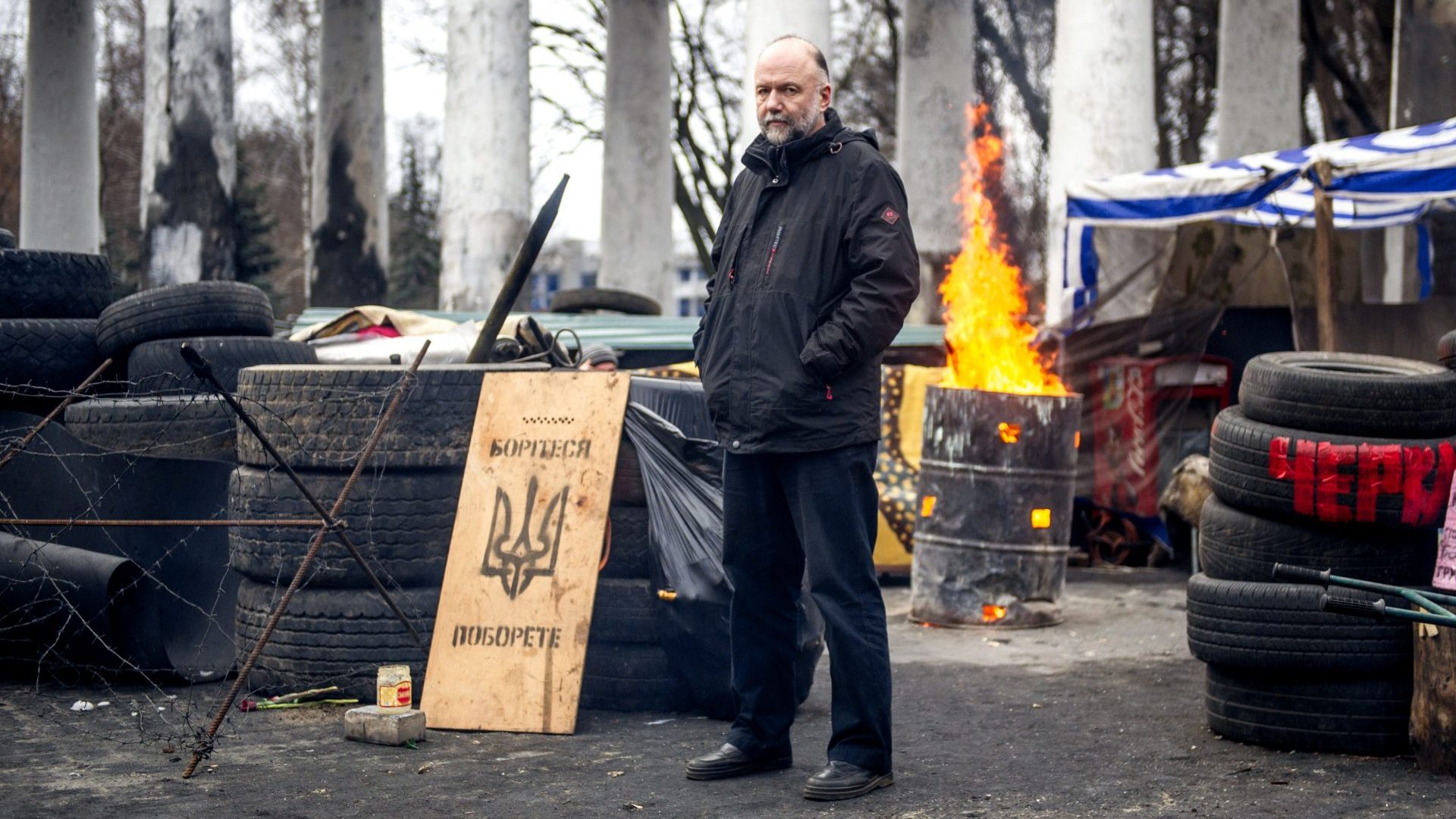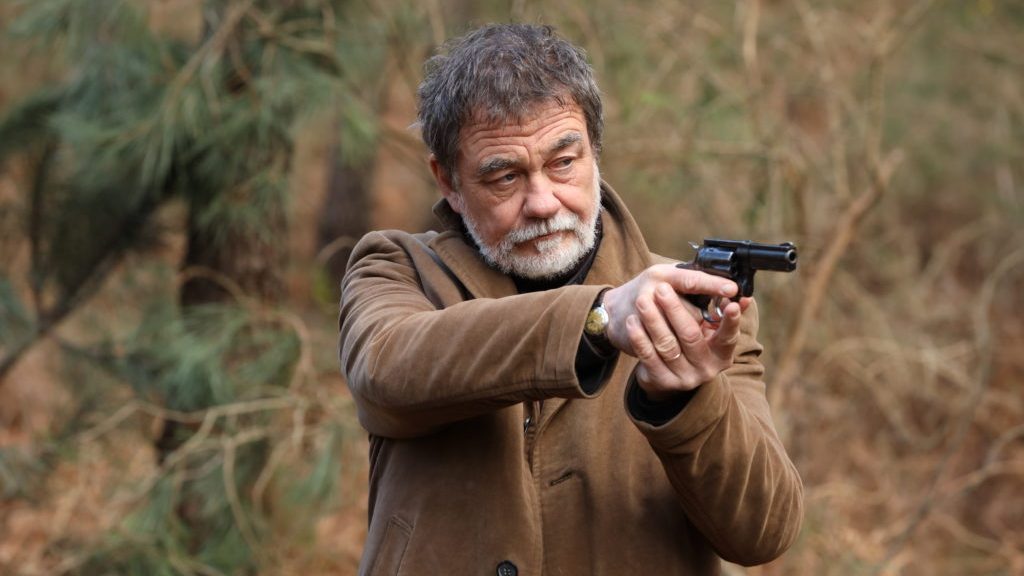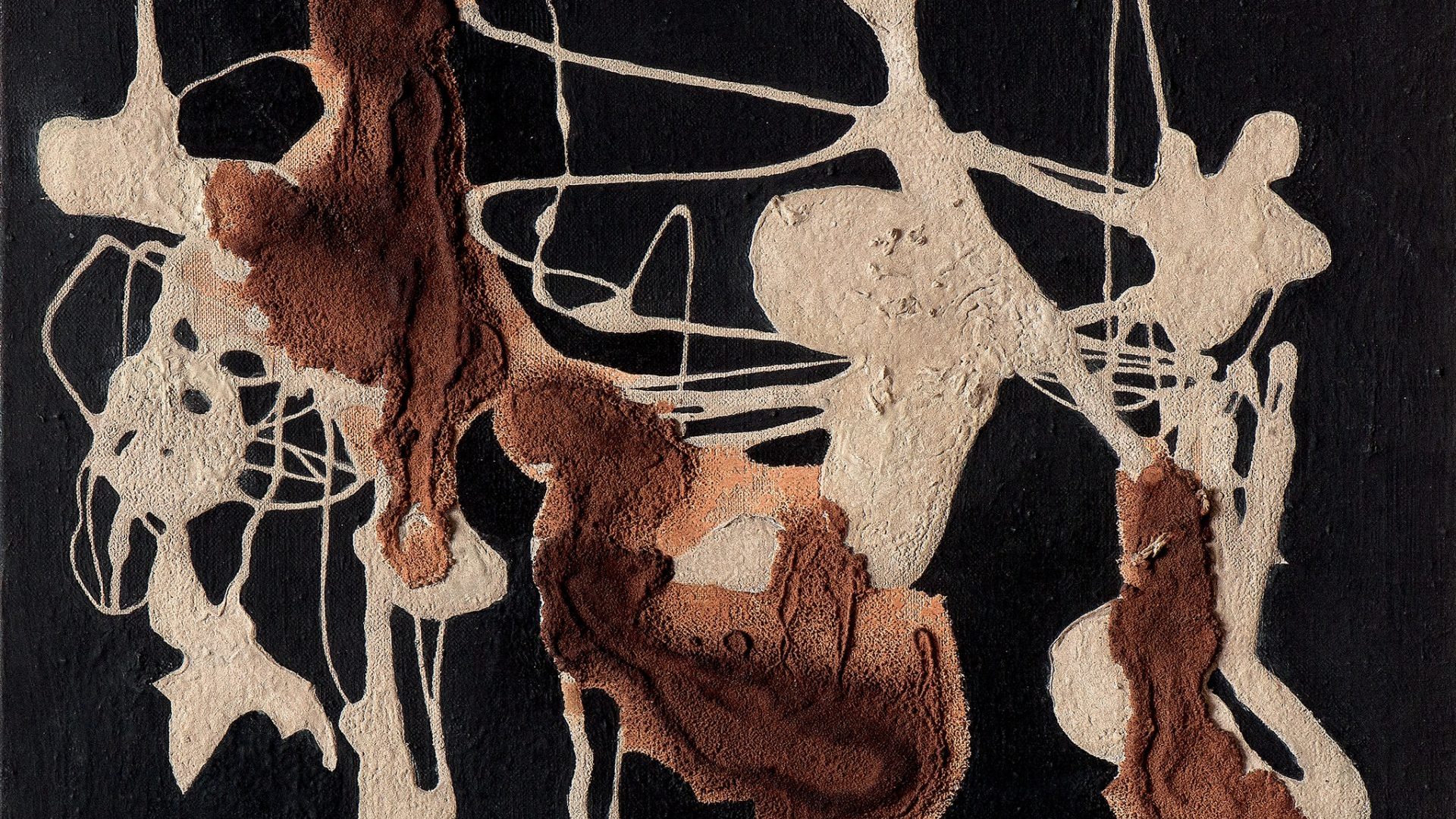Attempting to follow a war these days is as easy and as difficult as it has ever been. Twenty-four-hour news channels combine with social media to provide a relentless flow of images, footage, information and opinion, some of which is verified and useful but most of which contributes about as much to our greater understanding as a chimpanzee let loose with a soda siphon.
Yet it’s still so hard to look away. The feeling that one more refresh of your Twitter feed might bring down a shining shaft of understanding from the heavens, or at least some good news, is difficult to shake off and you almost feel guilty for going off and doing something else. The compulsion to just keep looking is strong.
Perhaps one justifiable escape from the noise is to retreat into books. Since
the start of the Russian invasion, I’ve revisited Anna Reid’s brilliant Borderland: A Journey Through the History of Ukraine, as good an introduction to the country as you’ll find.
Reid is a former Kyiv correspondent for the Economist and the book is particularly strong on the 20th century, from the Stalinist purges and the horrendous famine that starved millions of Ukrainians to death as a result of Stalin’s agricultural policies to the Chernobyl disaster. It is part travelogue, part history and is packed with anecdotes rooted in a firm sense of place and people. My copy was published in the 1990s but an updated edition appeared in 2015 to cover the Euromaidan protests and Crimean crisis.
Perhaps understandably copies are hard to find at the moment, which is also true of the Harvard professor Serhii Plokhy’s magisterial The Gates of Europe: A History of Ukraine, also published in the wake of the 2013-14 events, and Tim Judah’s In Wartime: Stories from Ukraine, in which he talks to a range of people involved in the tumultuous events of the Euromaidan rising and chronicles their stories.
Hopefully, publishers are rushing reprints through the system as we speak – all these books give a comprehensive and enlightening background to current events in Ukraine.
And then there is fiction. At times like this literature can seem like a luxury to some; a frivolous blocking out of reality to retreat into a world of fantasy. Yet Europe has a long history of literature helping to keep the flame alive among repressed people, poems memorised and cherished, samizdat publications being passed furtively among communities, something shared, something that says, this is us, this is who we are, this is at the heart of the collective dignity we retain despite everything.
There are few better ways to gain an understanding of a nation, its psyche and its culture than through its literature. This is particularly true of a people who have fought against oppression and repression where stories are a vital part of their identity, a people united by a language.
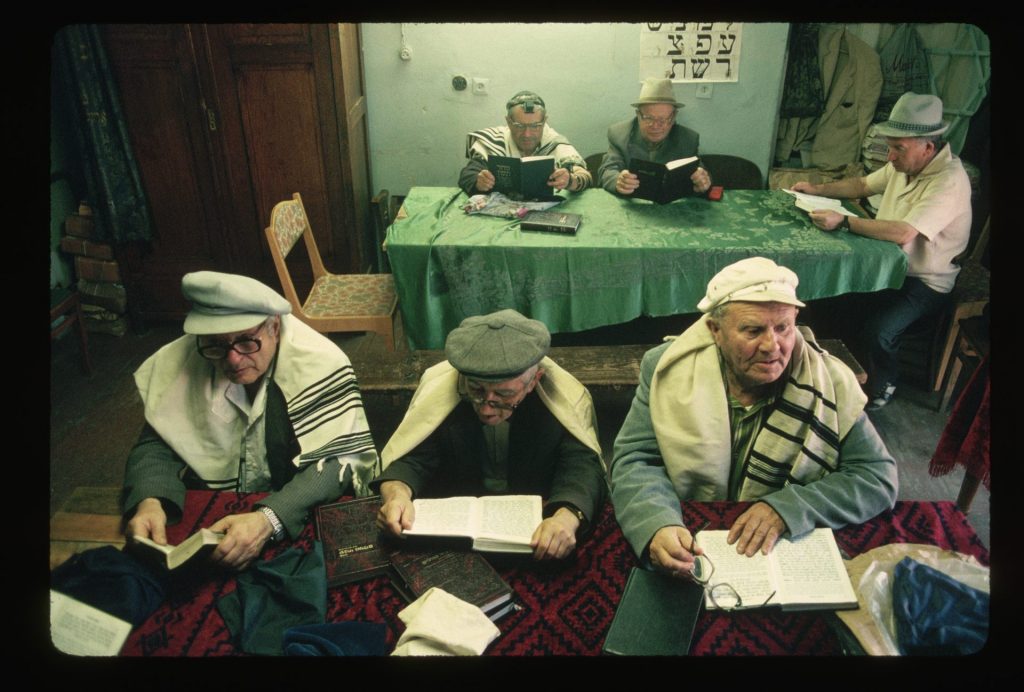
The long story of Ukrainian literature is packed with incredible authors and poets producing works that resonate deeply with the Ukrainian national psyche. Many have died for their craft, so many during the 1930s under Stalin, in fact, they are known today as the Executed Renaissance.
The scale of that repression was first revealed in the 1950s by a group of Ukrainian writers who had fled the Soviet Union. During the 1920s there had been a period of “Ukrainisation”, part of a system in which non-Russian regions of the Soviet Union were permitted roles in culture, government and education, in effect a devolved system of government and society. Ukrainian literature flourished, but when Stalin came to power the policy was not just
cancelled but reversed.
In 1930 there were 259 contemporary Ukrainian writers in print in the Soviet Union. By 1938 that figure had dropped to just 36. Of the 223 whose work had vanished, 192 had been either imprisoned or executed, 16 had simply disappeared and eight had committed suicide. That’s partly why literature is so important to Ukrainians today.
But what of now? Who among contemporary writers should we be reading in order to enhance our understanding of the current situation in Ukraine?
Kyiv-based Andrey Kurkov has long been visible in western media as an acerbic and informed analyst on Ukrainian issues.
His novel Death and the Penguin, a darkly funny satire of post-Soviet chaos and violence, was first published in English translation more than 20 years ago and remains the most internationally successful work of modern Ukrainian fiction.
His most recent novel, 2018’s Grey Bees, set in the shifting no man’s land between Russian and Ukrainian forces in eastern Ukraine, gets right to the
heart of the current conflict. A warm, moving and often funny novel, Grey Bees is set in a tiny village where everyone has fled except two old men, one remaining just because of his apiary, until he is forced to leave and wander through both sides of the conflict.
Russian-born and writing in Russian, Kurkov is an unusual focus for Ukrainian nationalism and on the face of it, a strange candidate to be Ukraine’s greatest living novelist.
But, as he said after the turmoil of 2014, “I am a Russian myself, after all, an ethnically Russian citizen of Ukraine. But I am not ‘a Russian’, because I have nothing in common with Russia and its politics. I do not have Russian citizenship and I do not want it”.
Oksana Zabuzhko has been a leading figure in Ukrainian culture for many years as a poet, novelist and philosopher writing on feminism and nationality in particular. Two of her novels are available in excellent English translations.
Fieldwork in Ukrainian Sex (1996) was a huge bestseller, staying in the book charts for a decade and becoming in effect a handbook of Ukrainian feminism, while the whopping The Museum of Abandoned Secrets, published in 2009, spans 60 years of recent Ukrainian history through the stories of three remarkable women caught up in remarkable events.
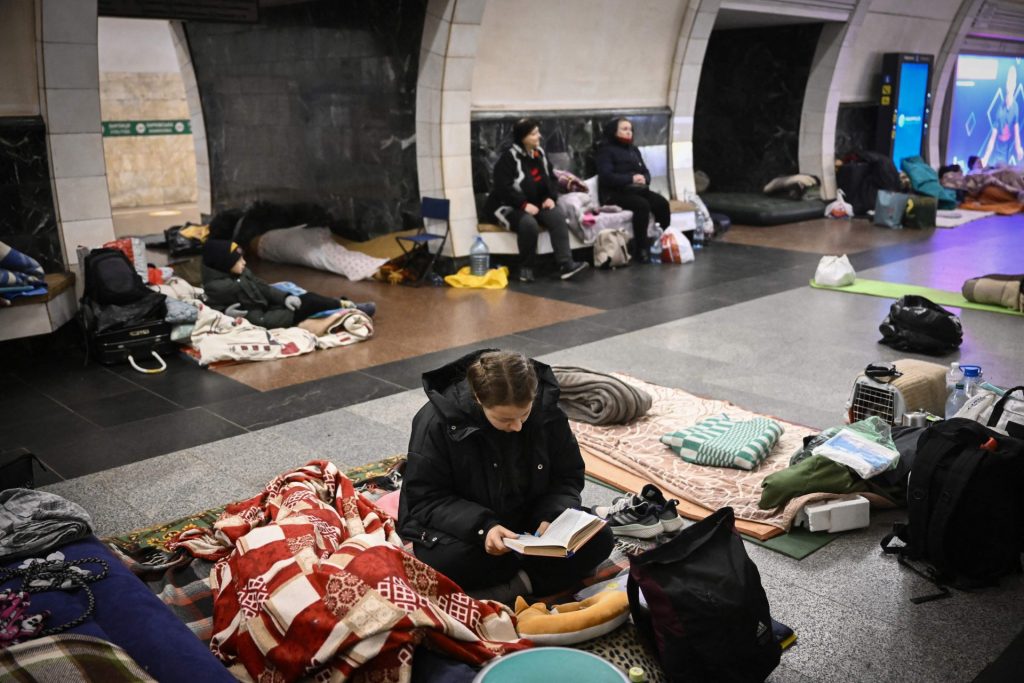
Also available in English is Serhiy Zhadan’s The Orphanage, published in 2017, a novel that has been described as a cross between Cormac McCarthy’s The Road and Ernest Hemingway’s A Farewell to Arms.
Zhadan is quite the Renaissance man: an outstanding poet who also fronts a successful ska band as well as running a charitable foundation bringing aid to Ukrainians affected by the previous Russian incursions in the east of the country.
The Orphanage follows Ukrainian language teacher Pasha as he sets out from Donetsk to retrieve his nephew from the eponymous establishment during the conflict of the mid-2010s, and is arguably the most vivid and unflinching literary description of what Ukrainians are enduring right now.
When Pasha reaches the orphanage, for example, he is shown the dead body of a sniper in one of the rooms and is told that the man’s phone rings at the same time every morning, just before his children would be leaving for school. It’s another book suffering a supply shortage at the moment, but is well worth tracking down.
One Ukrainian writer worth remembering in particular as his country battles for its very survival is the poet Vasyl Stus who, despite his death in a Soviet prison camp in 1985, looms over the current crisis.
Stus was a poet and committed dissident who spent the last 13 of his 47 years either in prison or in a labour camp. His sensitive, delicate yet inspiring verse – most notably in the 500-page, posthumously-published collection Palimpsests, mostly written in prison – is held dear by Ukrainians and has been ever since his emergence during the 1960s.
Despite repeated arrests and harassment, despite spending most of his prison years in solitary confinement, Stus refused to be cowed by the Soviet regime and kept writing in order that “the debris of torment might give birth to flowers”.
In 1980, shortly after being freed from prison for the first time since 1972, Stus was arrested for his association with dissident human rights organisation the Ukrainian Helsinki Group. He was sentenced to 10 years in a labour camp, followed by five years of exile, but died while on hunger strike in the Perm-36 camp in September 1985, barely six months before Mikhail Gorbachev unveiled his perestroika reforms.
At his trial, Stus’s court-appointed lawyer was Viktor Medvedchuk, who pleaded guilty on Stus’s behalf against his client’s wishes and emphasised to
the judge how much the poet deserved whatever punishment was coming his way. Today Medvedchuk is such a close ally of Vladimir Putin that the Russian leader is godfather to his daughter.
Worth an estimated £500m thanks to a media empire and oil interests, Medvedchuk leads Ukraine’s pro-Russian Opposition Platform – For Life party and in May last year was placed under house arrest by the Ukrainian government on charges of high treason (reports suggest Medvedchuk has since escaped house arrest).
In the event of Russia’s invasion of Ukraine succeeding, Medvedchuk has
been a name widely touted as the head of any puppet Putin government.
In one of his last poems, Medvedchuk’s former client, Stus, wrote:
My nation, to you I shall return,
And in death I will turn to life,
With my afflicted yet unblemished face
As your son, I will fall upon the earth
And honestly gaze into thy honest face,
And drench myself with honest tears.


